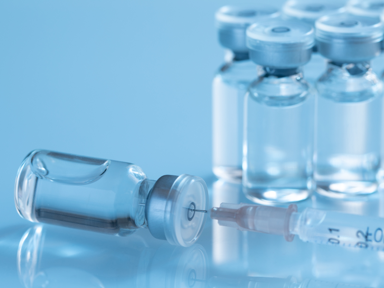firstwordpharmaJuly 09, 2021
Tag: Pfizer , COVID-19 , FDA , delta
Pfizer's chief scientific officer Mikael Dolsten indicated Thursday that the company plans to seek an FDA emergency-use authorisation next month for a third dose of its COVID-19 vaccine BNT162b2. The mRNA-based vaccine, partnered with BioNTech, is currently authorised in the US to be administered as two doses in people as young as 12. However, the companies highlighted initial data from a booster study suggesting that a third shot, given about six months after the second, induces neutralisation titres against the original virus and Beta variant (B.1.351) that are five to 10 times higher than after the two primary doses.
According to Dolsten, the antibody results are based on a small initial cohort of roughly 10 to 20 people who received the booster, but "the dataset is so clear we have complete confidence that the full study will reproduce this." The companies believe a third dose will elicit a similar boost in neutralisation titres against the highly transmissible Delta strain (B.1.617.2). They expect to publish more definitive data "soon" and plan to submit the data to the FDA, European Medicines Agency and other regulatory bodies "in the coming weeks."

Dolsten suggested the companies were going public with their plans in part because of increasing concern over variants, including Delta. Some recent data released by Israel this month found that the efficacy of BNT162b2 had dropped to 64% since the Delta variant took over in that country, although it was still 93% effective at preventing serious symptoms and hospitalisations.
"As seen in real-world evidence released from the Israel Ministry of Health, vaccine efficacy has declined six months post-vaccination, at the same time that the Delta variant is becoming the dominate variant," Pfizer and BioNTech said, noting that "these findings are consistent with an ongoing analysis from [our] Phase III study." They added, "[this] is why we have said, and we continue to believe that it is likely – based on the totality of the data we have to date – that a third dose may be needed within six to 12 months after full vaccination."
Still, while they believe a third shot of their current vaccine is likely to preserve the "highest levels" of protection against all currently known variants, including Delta, they are "remaining vigilant" and developing an updated construct that targets the full spike of the Delta strain. Clinical testing could begin as early as August, subject to regulatory approvals, and a first batch of mRNA for the trial has already been manufactured.
However, Dolsten suggested this new updated version probably will not be needed given that the existing vaccine does a good job of producing antibodies against the variant. He said even preventing mild cases can be useful because it will help slow down infections that can lead to new variants, and avoid cases of "long Covid" that can occur even after mild infections.
Separate analyses conducted in England and Scotland recently found that BNT162b2, which is also knwon as Comirnaty, and AstraZeneca's Vaxzevria (AZD1222) offered substantial protection from the Delta variant against severe cases of COVID-19 and hospitalisation.


Contact Us
Tel: (+86) 400 610 1188
WhatsApp/Telegram/Wechat: +86 13621645194
Follow Us:




 Pharma Sources Insight January 2025
Pharma Sources Insight January 2025


